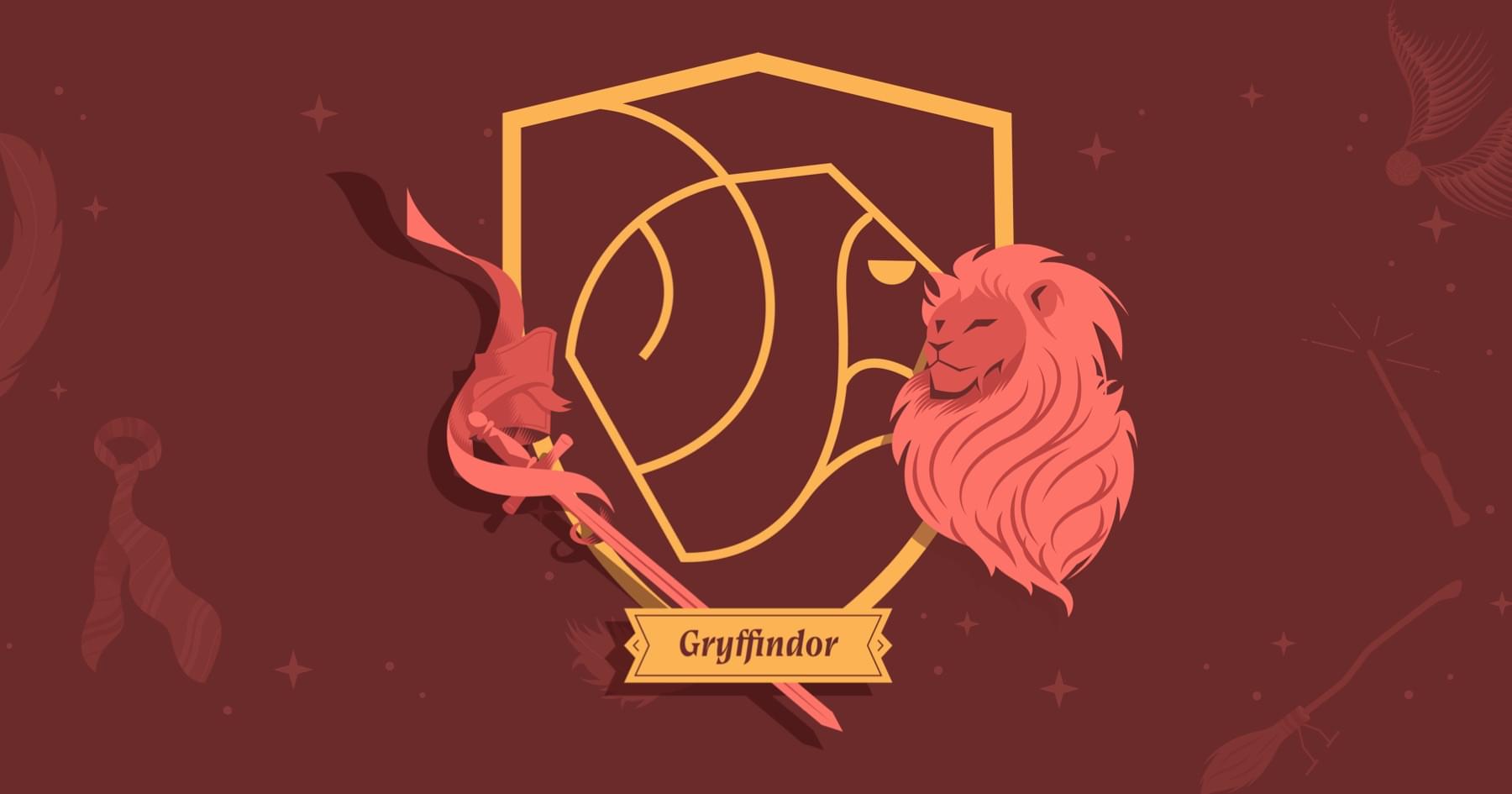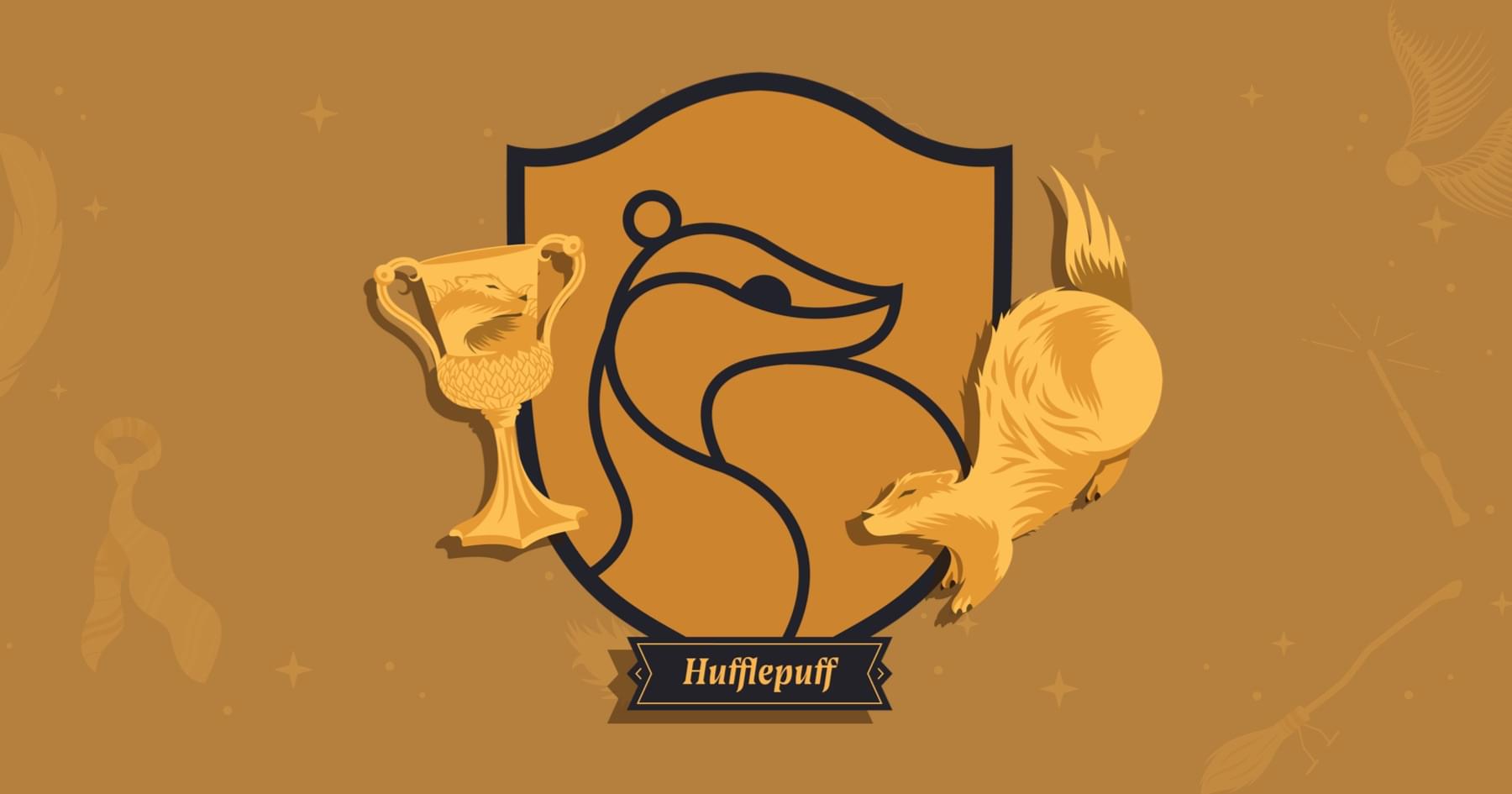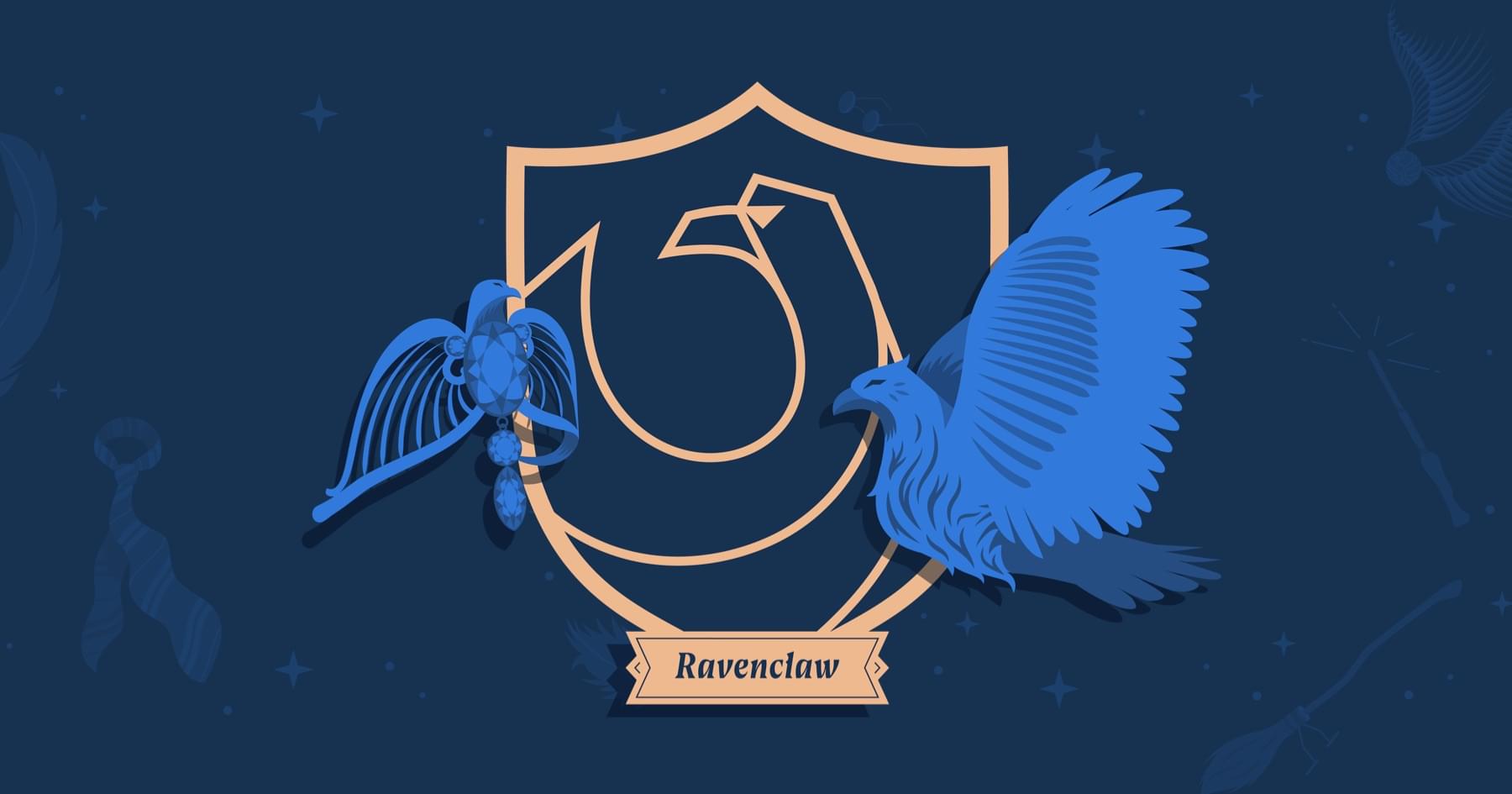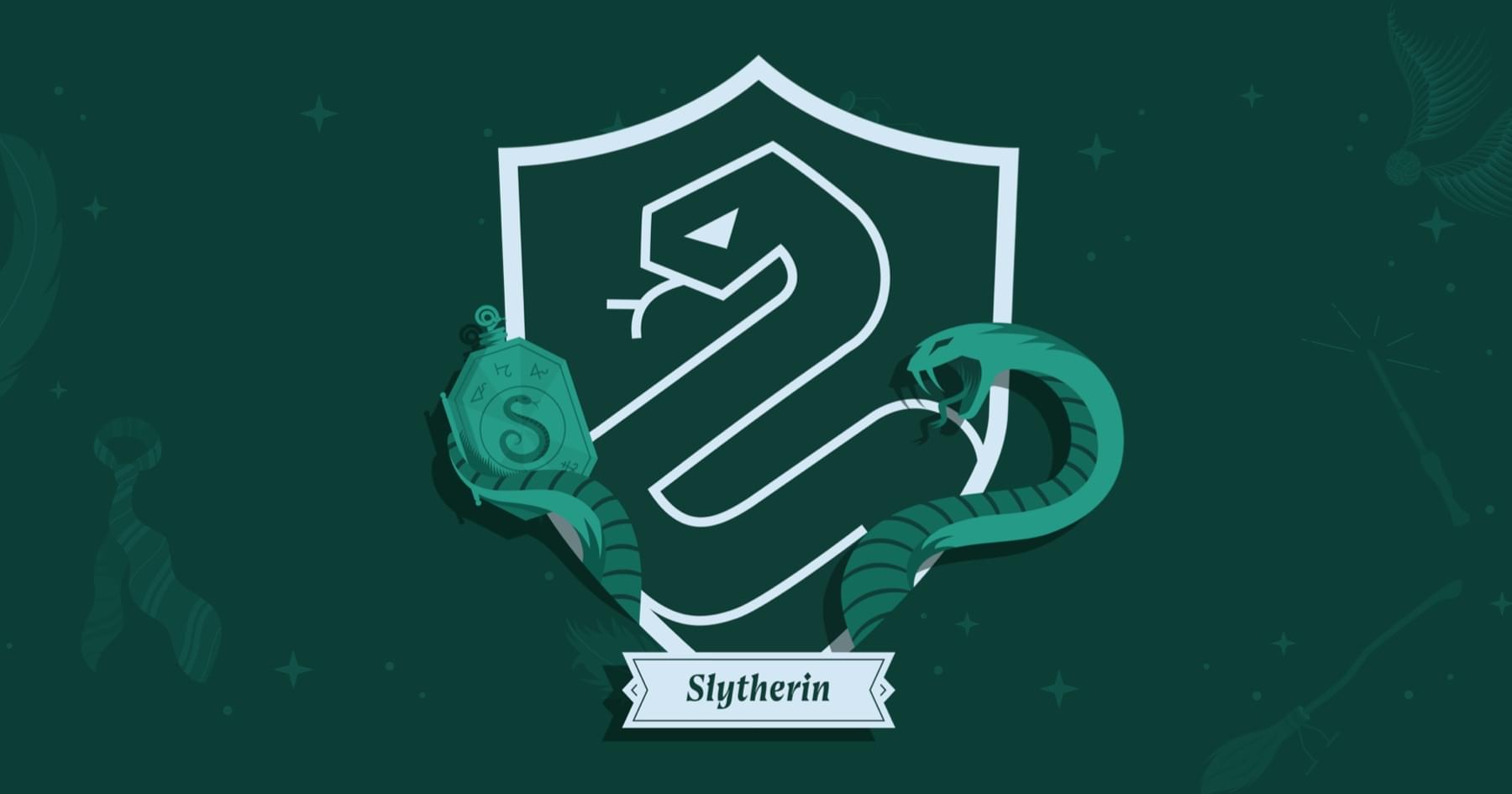Hello Everyone!
This week, for my final post of this semester, I will be discussing the psychology behind the Hogwarts House sorting. I am going to assume that everyone who I reading this blog knows about the Hogwarts houses so I will only be doing a brief explanation of them at the beginning of their sections. Some background information is necessary though. The Big Five are personality traits believed to be at the core of the human personality. The five are openness, conscientiousness, extraversion, agreeableness, and neuroticism. There is a scale of extremes for all of the traits. For example, extraversion is a scale from extreme extraversion to extreme introversion. They have been found to be universally reliable.
Here is a brief explanation of each trait…
- Openness
- Imagination and Insight
- High in the trait
- Many interests, curious about the world, want to learn and experience new things, adventurous, and creative
- Low in the trait
- Dislike change, more traditional, not imaginative, resist new ideas, dislikes abstract ideas
- High in the trait
- Imagination and Insight
- Conscientiousness
- Thoughtfulness and impulse control
- High in the trait
- Organized, mindful of details, plans ahead, likes schedules, and finishes important tasks quickly
- Low in the trait
- Dislikes structure and schedules, makes messes, fails to return things or put them back where they belong, procrastinates important tasks, fails to complete necessary or assigned tasks
- High in the trait
- Thoughtfulness and impulse control
- Extraversion
- Excitability and sociability
- High in the trait
- Enjoys being the center of attention, likes to start conversations, enjoys meeting new people, has a wide social circle of friends and acquaintances, finds it easy to make new friends, feels energized when around other people, say things before thinking about them
- Low in the trait
- Prefers solitude, feels exhausted when having to socialize a lot, finds it difficult to start conversations, dislikes making small talk, carefully thinks things through before speaking, dislikes being the center of attention, needs to “recharge” after being in social situations
- High in the trait
- Excitability and sociability
- Agreeableness
- Trust and kindness
- High in the trait
- Has a great deal of interest in other people, cares about others, feels empathy and concern for other people, enjoys helping and contributing to the happiness of other people, assists others who need help, cooperative
- Low in the trait
- Takes little interest in others, doesn’t care about how other people feel, has little interest in other people’s problems, insults and belittles others, manipulates others to get what they want, competitive
- High in the trait
- Trust and kindness
- Neuroticism
- Sadness and emotional stability
- High in the trait
- Experiences a lot of stress, worries about many different things, gets upset easily, experiences dramatic shifts in mood, feels anxious, struggles to bounce back after stressful events, sadness
- Low in the trait
- Emotionally stable, deals well with stress, rarely feels sad or depressed, doesn’t worry much, is very relaxed, emotionally resilient
- High in the trait
- Sadness and emotional stability
I will be talking about the dark triad as well. Three negative personality traits. “People with these traits tend to be callous and manipulative, willing to do or say practically anything to get their way” according to Psychology Today. They also “are likely to be impulsive and may engage in dangerous behavior—in some cases, even committing crimes—without any regard for how their actions affect others”. The three traits are Narcissism, Machiavellianism, and Psychopathy.
- Narcissism
- The pursuit of ego gratification, vanity, a sense of superiority, grandiosity, dominance, and entitlement
- Machiavellianism
- Manipulation – a calculating, duplicitous, and amoral personality, focused on self-interest and personal gain
- Psychopathy
- Callousness, impulsivity, and enduring antisocial and bold behavior.
I’ll also be talking about the Need for Cognition. It basically just means the extent to which people are inclined to participate in “effortful cognitive activities”. Someone with high NFC would have an “increased appreciation of debate, idea evaluation, and problem solving” (Wikipedia). Those with a low NFC could display opposite tendencies. They may be more heuristic in the way they process information, often through “low elaboration” (Wikipedia).
Now that you are all caught up, let’s jump in!

How about we start with Gryffindor?
“You might belong in Gryffindor,
Where dwell the brave at heart,
Their daring, nerve, and chivalry
Set Gryffindors apart” – The Sorting Hat
People who are sorted into Gryffindor usually score high in extraversion and openness. This means that they seek out social stimulation and opportunities to engage with others. They are positive, full of life, and energy. They also seek new experiences, creativity, and change.

Moving on to Hufflepuffs,
“You might belong in Hufflepuff,
Where they are just and loyal,
Those patient Hufflepuffs are true
And unafraid of toil” – The Sorting Hat
Throughout the book, Hufflepuffs are described as nice, hardworking, loyal, and just. There are several personality traits that align with these attributes. Agreeableness describes people who are warm and friendly and is closely connected to justness and niceness. Conscientiousness is seen in Hufflepuffs through their hard-working and dependable nature.

Now to Ravenclaws,
“Or yet in wise old Ravenclaw,
if you’ve a ready mind,
Where those of wit and learning,
Will always find their kind” – The Sorting Hat
Those in the Ravenclaw house put a high value on wisdom and willingness to learn new things. They would score high on the NFC scale. They would also be conscientious with a mind for details.

Last but not least, the house of Slytherin,
“Or perhaps in Slytherin
You’ll make your real friends,
Those cunning folks use any means
To achieve their ends” – The Sorting Hat
Slytherin are often “sly, cunning and would do anything to achieve their own goals” (expecto psychologum). Those traits could lead to the assumption that Slytherins would score high on the Dark Triad traits. The Machiavellianism trait makes sense for their slyness and practicality, as well as their need for achievement. Narcissism makes sense for the pride they feel. The psychopathy applies to their ability to look anything over as long as it benefits them. Of course, it needs to be said that not all Slytherins are bad.
None of the houses have a high level of neuroticism, which is good considering a house with primarily neurotic individuals in it would not go over well.
Here is the link to a personality test in case you would like to see your own levels of the Big Five. Here is a link to a sorting house quiz. If you don’t want to make an account, here is one link.
Thank you so much for reading my blog post for the last time this semeseter! I hope that was entertaining, insightful, and you weren’t bored!
Sources –
“The Big Five Personality Test.” Truity, 20 Oct. 2020, www.truity.com/test/big-five-personality-test.
“Big Five Personality Traits.” Wikipedia, Wikimedia Foundation, 2 Dec. 2020, en.wikipedia.org/wiki/Big_Five_personality_traits.
Cherry, Kendra. “What Are the Big 5 Personality Traits?” Verywell Mind, 13 July 2020, www.verywellmind.com/the-big-five-personality-dimensions-2795422.
“Dark Triad.” Psychology Today, Sussex Publishers, www.psychologytoday.com/us/basics/dark-triad.
Dixon, Dr. Darcie. “On the Psychology of Your Harry Potter House – Dr Darcie Dixon: Behavioural Sassonomics.” Dr Darcie Dixon | Behavioural Sassonomics, Dr Darcie Dixon | Behavioural Sassonomics, 12 Jan. 2020, www.drdarciedixon.com/blog/on-the-psychology-of-your-harry-potter-house.
“Hogwarts Houses Correspond To Real Psychological Personality Traits, New Study Finds.” The, 23 June 2015, www.the-leaky-cauldron.org/2015/06/23/hogwarts-houses-correspond-to-real-psychological-personality-traits-new-study-finds/.
Jakob, Lea, et al. “The Science Behind the Magic? The Relation of the Harry Potter ‘Sorting Hat Quiz’ to Personality and Human Values.” University of California Press, University of California Press, 8 July 2019, online.ucpress.edu/collabra/article/5/1/31/113037/The-Science-Behind-the-Magic-The-Relation-of-the.
Maggie O’Neill April 27, and Maggie O’Neill. “You Should Never Mix These Cleaning Products, According to a Poison Control Expert.” Health.com, 27 Apr. 2020, www.health.com/news/cleaning-products-never-mix.
“Need for Cognition.” Wikipedia, Wikimedia Foundation, 25 Oct. 2020, en.wikipedia.org/wiki/Need_for_cognition.
“Oh Dear. Are You Lost?” Back to Wizarding World, www.wizardingworld.com/outcome/gryffindor.
“Oh Dear. Are You Lost?” Back to Wizarding World, www.wizardingworld.com/outcome/hufflepuff.
“Oh Dear. Are You Lost?” Back to Wizarding World, www.wizardingworld.com/outcome/ravenclaw.
“Oh Dear. Are You Lost?” Back to Wizarding World, www.wizardingworld.com/outcome/slytherin.
Parker, Mitchell Shaun. “Why Your Hogwarts House Matters.” Medium, Medium, 7 Jan. 2017, medium.com/@mitchellshaunparker/why-your-hogwarts-house-matters-92f0d164a39f.
R., A. “The Dark Triad in Movie Characters.” Medium, Medium, 28 Mar. 2020, anjalireddy-40541.medium.com/the-dark-triad-in-movie-characters-9cc36cb83cc6.
“Sorting Hat and Personality – What Does Your Hogwarts House Say about You?” Expecto Psychologum, 23 Apr. 2019, expectopsychologum.com/sorting-hat-personality-hogwarts/.
[{“@type”:”Person”, “name”:”Ellie Bate”. “What Is Your Hogwarts House Percentage?” BuzzFeed, BuzzFeed, 3 Dec. 2020, www.buzzfeed.com/eleanorbate/accurate-af-sorting-quiz.

Shelby, your blog was so interesting and unique to read! I loved every blog post. Nice job this semester.
Pingback: The Most Common Hogwarts House in Every Country and U.S. State - TheToyZone
Pingback: The Most Common Hogwarts House in Every Country and U.S. State – Chris Metro
This really helped me with my final project for high school!!!